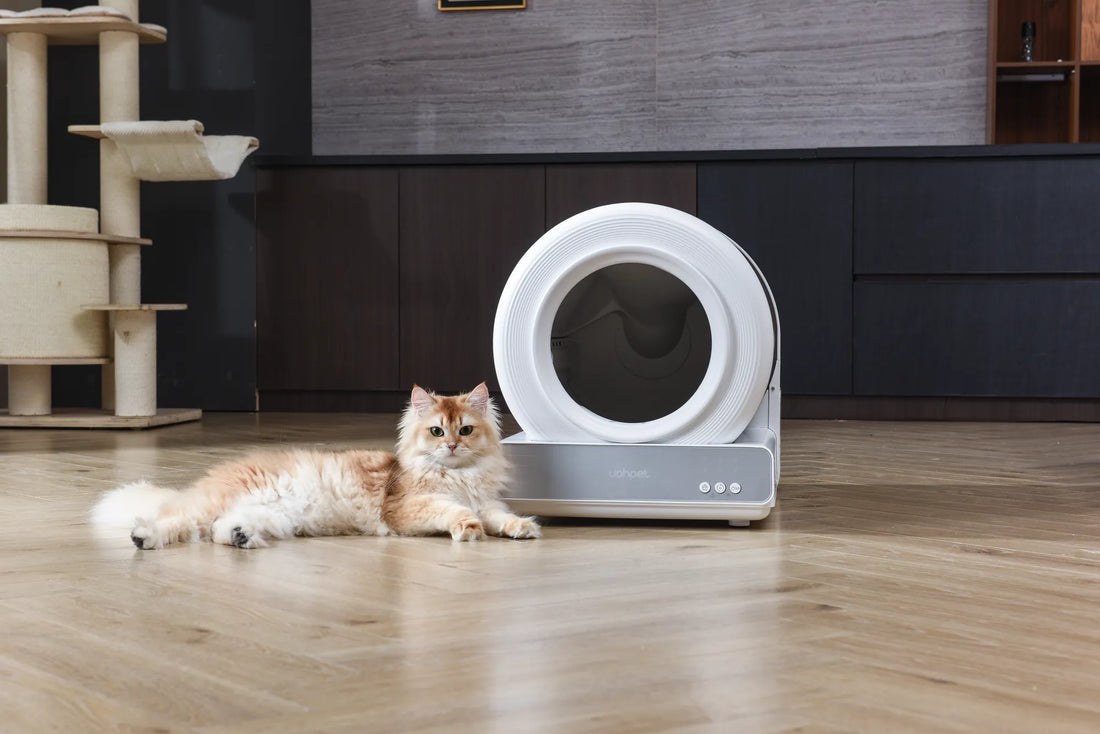Have you ever walked into your home to find your cat curled up in the litter box, fast asleep? It's a sight that can leave any cat owner puzzled and concerned. While it may seem odd, there are several reasons why your feline friend might choose the litter box as their sleeping spot. Understanding these reasons can help you address the issue and ensure your cat's comfort and health.
Understanding Your Cat's Behavior
Cats are creatures of habit, and their behaviors often have underlying causes. Sleeping in the litter box is no exception. To comprehend why your cat might be doing this, it's essential to consider various factors, including their environment, health, and emotional state.
Stress and Anxiety
One of the most common reasons cats sleep in their litter boxes is stress or anxiety. Cats are sensitive animals, and changes in their environment can trigger stress. This could be due to a new pet in the house, a move to a new home, or even changes in their daily routine. The litter box, being a familiar and enclosed space, can provide a sense of security for a stressed cat.
Health Issues
Health problems can also lead to this behavior. If your cat is experiencing pain or discomfort, they might seek out the litter box as a place to rest. Conditions such as urinary tract infections, gastrointestinal issues, or arthritis can make it difficult for your cat to move around comfortably, leading them to stay close to the litter box.
Territorial Behavior
Cats are territorial animals, and the litter box is a significant part of their territory. If your cat feels threatened by other pets or even humans in the household, they might sleep in the litter box to assert their dominance and protect their space.
Environmental Factors
The environment plays a crucial role in your cat's behavior. Ensuring that your cat has a comfortable and stress-free environment can help prevent them from sleeping in the litter box.
Litter Box Placement
Where you place the litter box can influence your cat's behavior. If the litter box is in a quiet, secluded area, your cat might feel more comfortable sleeping there. On the other hand, if the litter box is in a high-traffic area, your cat might seek it out as a safe haven from the hustle and bustle.
Cleanliness of the Litter Box
A dirty litter box can also be a factor. Cats are clean animals, and if their litter box is not cleaned regularly, they might avoid using it for its intended purpose and instead use it as a sleeping spot. Ensuring that the litter box is clean and well-maintained can help deter this behavior.
Addressing the Issue
If your cat is sleeping in the litter box, it's essential to address the issue promptly. Here are some steps you can take to help your cat feel more comfortable and secure.
Consult a Veterinarian
The first step is to rule out any underlying health issues. A visit to the veterinarian can help identify any medical conditions that might be causing your cat to sleep in the litter box. Your vet can also provide guidance on managing any health problems and ensuring your cat's well-being.
Create a Comfortable Environment
Providing your cat with a comfortable and stress-free environment is crucial. Ensure that your cat has access to cozy sleeping spots, such as cat beds or blankets, in quiet areas of the house. Additionally, try to minimize changes in their routine and environment to reduce stress.
Multiple Litter Boxes
If you have multiple cats, it's essential to provide enough litter boxes for each cat. The general rule is to have one litter box per cat, plus one extra. This can help reduce territorial disputes and ensure that each cat has access to a clean litter box.
Positive Reinforcement
Using positive reinforcement can encourage your cat to use their litter box appropriately. Reward your cat with treats or praise when they use the litter box for its intended purpose. This can help reinforce good behavior and discourage them from sleeping in it.
Preventing Future Issues
Preventing your cat from sleeping in the litter box involves addressing the underlying causes and creating a supportive environment. Here are some tips to help prevent this behavior in the future.
Regular Health Check-ups
Regular veterinary check-ups can help identify and address any health issues before they become problematic. Keeping your cat healthy and pain-free can reduce the likelihood of them seeking out the litter box as a resting spot.
Stress Reduction
Reducing stress in your cat's environment is essential. Provide plenty of hiding spots, scratching posts, and toys to keep your cat entertained and engaged. Additionally, try to maintain a consistent routine to help your cat feel secure.
Cleanliness and Maintenance
Keeping the litter box clean and well-maintained is crucial. Regularly scoop the litter and change it as needed to ensure that your cat has a clean and comfortable place to do their business. This can help prevent them from using the litter box as a sleeping spot.
Understanding why your cat sleeps in the litter box is the first step in addressing this behavior. By considering factors such as stress, health issues, and environmental influences, you can take steps to ensure your cat's comfort and well-being. Remember, a happy and healthy cat is less likely to seek out the litter box as a sleeping spot. So, take the time to create a supportive environment and address any underlying issues to keep your feline friend content and thriving.














